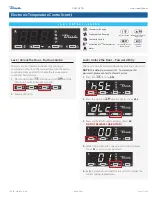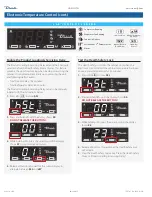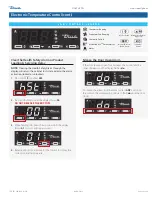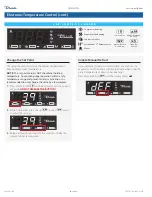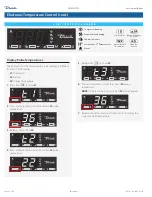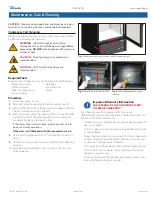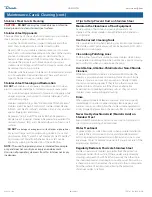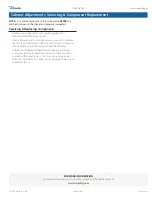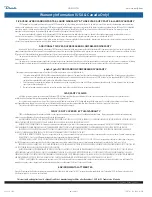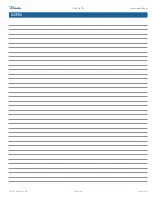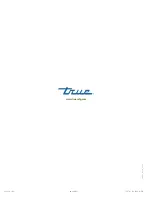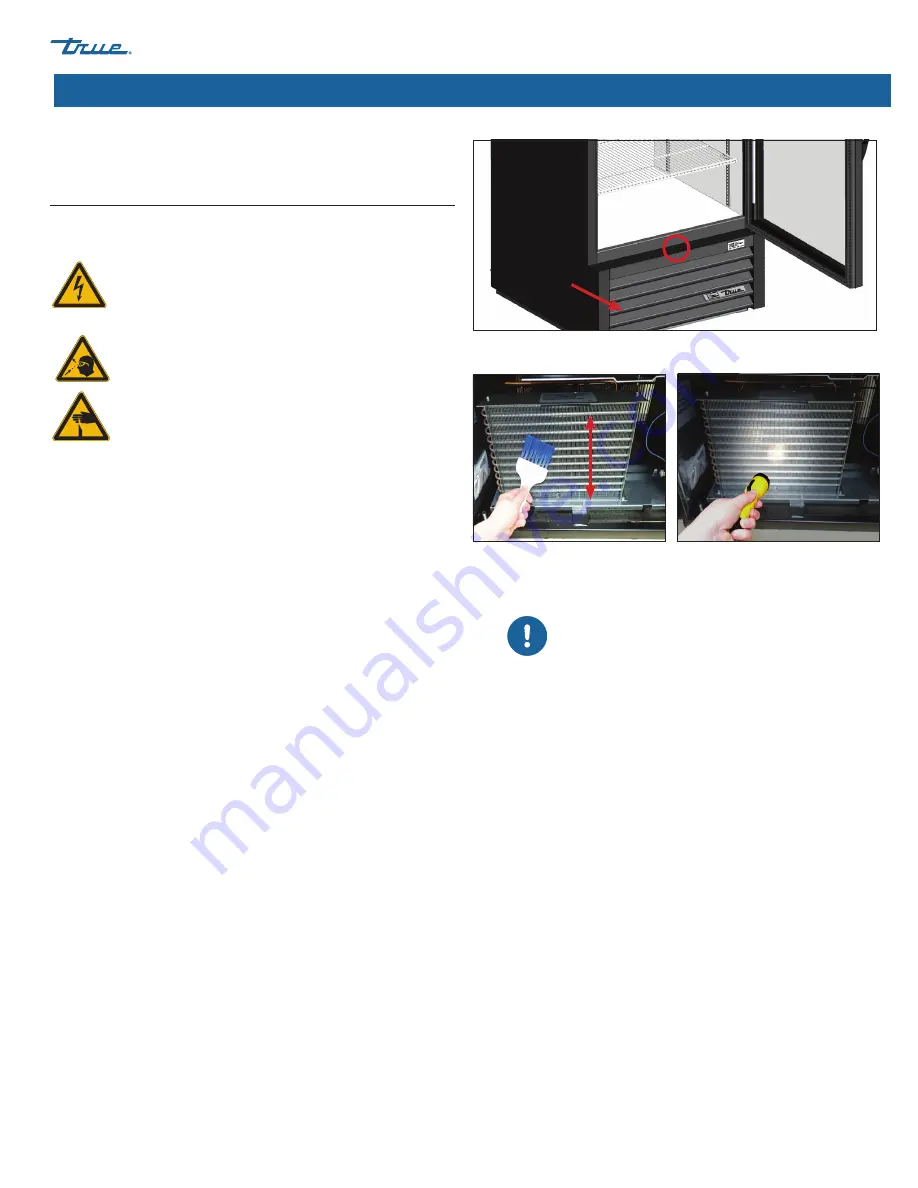
GDM HST02
TEC_TM_158 | REV. A | EN
06/28/2022
Page 23 of 28
www.truemfg.com
Maintenance, Care & Cleaning
Fig. 2.
Never brush across the coil fins.
Fig. 3.
Verify all blockages have been
removed.
CAUTION
- Take care during operation, maintenance or repairs
to avoid cuts or pinching from any cabinet part/component.
Condenser Coil Cleaning
When using electrical appliances, basic safety precautions should
be followed, including the following:
WARNING
– Electrical shock or burn hazard.
Unplug the unit or turn off the power supply before
proceeding. DO NOT clean appliance with a pressure
washer or hose.
CAUTION
– Risk of eye injury. Eye protection is
recommended.
CAUTION
– Coil fins are sharp. Gloves are
recommended.
Required Tools
Required tools include (but may not be limited to) the following:
Procedure
1.
Disconnect power to unit.
2.
Remove the front louvered grill from the cabinet. See fig. 1.
3.
With a stiff bristle brush, carefully clean accumulated dirt from
the front condenser coil fins. See fig. 2.
4.
With dirt removed from the surface of the coil, use a flashlight
to verify that you can see through the coil and observe the
condenser fan blade spinning. See fig. 3.
If the view is clear, reinstall louvered grill, connect unit to
power and verify operation.
If the view is still blocked with dirt, proceed to step 5.
5.
Gently blow compressed air or CO
2
through the coil until it is
clean.
6.
Carefully vacuum any dirt around and behind the condensing
unit area.
7.
Reinstall the louvered grill, connect power to the unit, and
verify operation.
• Phillips screwdriver
• Stiff bristle brush
• Tank of compressed air
• Vacuum cleaner
• Flashlight
• Eye protection
• Gloves
Fig. 1.
Front louver grill screw location. Carefully remove the grill.
Important Warranty Information
THE CLEANING OF THE CONDENSER IS NOT
COVERED BY WARRANTY!
If you have any questions, please contact your local
TRUE Manufacturing Service Department. See the front cover for
locations and contact information.
• Condenser coils accumulate dirt and require cleaning every 30
days or as needed.
• A dirty condenser coil can result in non-warranted repairs and/
or cabinet failure.
• Proper cleaning involves removing dust from the condenser by
using a soft brush, vacuuming the condenser with a shop vac,
or using CO
2
, nitrogen or pressurized air.
• Do not place any filter material in front of the condensing coil.
• On most units, the condenser is accessible by removing the
cabinet's outer grill cover.
• If you cannot remove the dirt adequately, please contact your
licensed refrigeration service provider.









